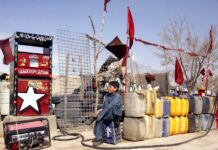ISLAMABAD: As the federal government has finally suspended collection of all taxes in Gilgit-Baltistan (GB) after a 15-day long protest across the region against imposition of taxes, it is going to introduce another tax system to target non-locals, especially companies going there to invest following the development taking place due to China-Pakistan Economic Corridor (CPEC).
“Being a gateway to the corridor, the region has opened the door for investors. Both national and international companies are ready to invest in the area. We will lose huge revenue in terms of taxes in case the region is declared as a tax-free zone,” said an official of Gilgit-Baltistan Council requesting anonymity.
“This is the reason why the government has suspended collection of taxes through a notification on Thursday till the introduction of a new tax adaptation act,” he said adding that the new taxation system would largely target the non-locals and corporate sector.
After the weeks-long protest and shutter down strikes across the region, the GB Council’s meeting, chaired by Prime Minister Shahid Khaqan Abbasi, had decided to suspend the collection of taxes including income tax, withholding tax and taxes on banking transactions etc. The notification, a copy of which is available with Pakistan Today, says, “GB Council is pleased to restrain the department of GB Inland Revenue and all withholding agents from the collection of all taxes under the GB Council Income Tax (Adaptation) Act 2012, till amendments are made in the said act.”
“We, by avoiding levying taxes on locals, should not give a blanket exemption to the giant companies investing in the area. Besides, the region also needs to generate revenue through the taxation system,” said the official.
According to the official, complete abolishment of the Income Tax Petition Act 2012 was not in the interest of the region. Due to the act, the members of the GB Legislative Assembly were declaring their assets, whereas prior to it they were not required to do so.
Another positive aspect of the act was that the telecom companies were collecting tax from people and spending it on their welfare. It was possible due to this important act.
Besides that, mega projects of PSDP and CPEC have been started in which national and multi-national companies are taking part. These companies are paying taxes in other provinces and would have to pay taxes in GB too for people’s wellbeing.
On the other hand, the protestors are of the view that GB is a ‘disputed territory’, which is the biggest hindrance in bringing international investment to the area. “Before we are asked to pay additional taxes, we must be granted the political status of a province under the constitutional ambit of Pakistan. We want the government to address the root cause of all problems first, which includes providing a well-defined legal status to GB,” said a leader of Awami Action Committee, which headed the entire protest along with traders’ alliance and other parties.
“We would be on streets again if the new act introduces something against the agreed terms between protesters and government and wishes of the people,” he said.
























Need a copy of the notification for suspension of GB taxes